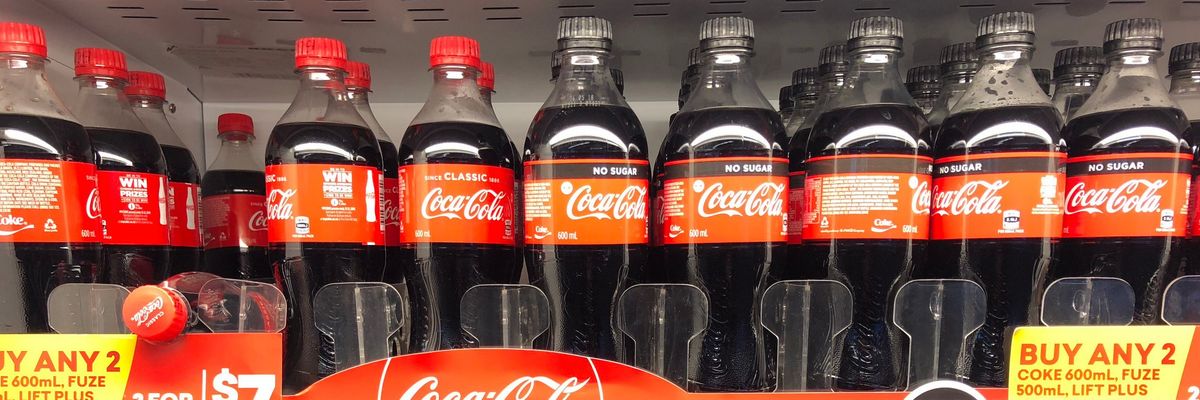Nearly half the members of the U.S. government panel that helps draft dietary guidelines for Americans have ties to the food, pharmaceutical, or weight loss industry, a report released this week revealed.
"Food and pharmaceutical industry actors have historically sought to influence the U.S. Dietary Guidelines for Americans (DGA), and have had financial ties to nutrition experts on the Dietary Guidelines Advisory Committee (DGAC), which reviews the latest science on diet, nutrition, and health outcomes to make recommendations for the DGA," states the report, which was authored by researchers at the advocacy group U.S. Right to Know.
"We found that 13 of 20 DGAC members had high-risk, medium-risk, or possible conflicts of interest with industry actors," the authors wrote.
Of these, nine were high- or medium-risk conflicts with companies and industry groups including Coca-Cola, the Nestlé Nutrition Institute, National Dairy Council, Weight Watchers International, Beyond Meat, the California Walnut Commission, and the National Egg Board. Big Pharma giants including Pfizer, Abbott, Novo Nordisk, and Eli Lilly are also named in the report.
U.S. Right to Know executive director Gary Ruskin toldThe Guardian that revelations like those in the report erode consumer confidence in government dietary guidelines.
"Millions of Americans' lives are affected by this report and it's crucial that the report tell the truth to American people and it's not degraded into another sales pitch for Big Food and Big Pharma," Ruskin said.
The report also notes some "encouraging findings," including that "seven members had no relationships in the past five years that met our definition" of conflicts of interest, and that "four members only had one instance" of possible conflicts.
"Surely, there is room for further improvement," the publication states. "With high-risk conflicts of interest still present on the DGAC,
the public cannot have confidence that the official dietary advice of the U.S. government is free from industry influence."
The report's authors offer recommendations for the U.S. Department of Health and Human Services and U.S. Department of Agriculture, including:
- Not appointing DGAC members with high-risk conflicts of interest;
- Disclosing individual members' conflicts during the last five years;
- Using a better disclosure form;
- Publishing a list of provisional appointees prior to appointment, open for public comment; and
- Including leadership roles or paid roles at conflicted nutrition organizations in disclosures of potential conflicts of interest.
The group also called on Congress to expand the Physician Payments Sunshine Act to cover the nutrition field.

